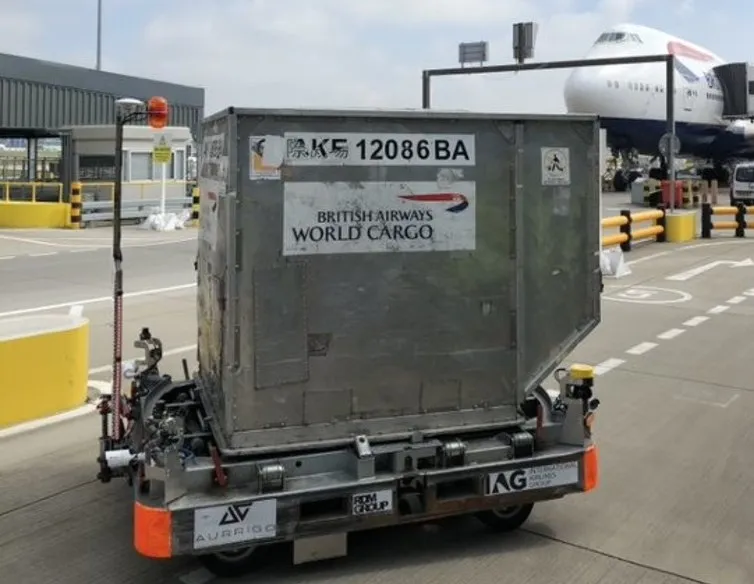
Loss of passenger plane cargo space a worry in COVID fight
Mar 16, 2020

The reduction in passenger flights during the COVID-19 pandemic has significantly impacted cargo capacity for transporting essential goods, including vaccines and medical supplies. With fewer planes in operation, the available space for cargo has diminished, leading to potential delays and increased costs for critical shipments. This shortage poses challenges for global vaccination efforts and the distribution of vital supplies, making it imperative to find alternative solutions. The reliance on dedicated freighters and other logistical strategies has become essential to ensure that healthcare systems receive necessary resources in a timely manner, highlighting the interconnectedness of aviation and public health.
The COVID-19 pandemic has drastically reshaped the aviation industry, resulting in significant changes to passenger flight operations. One of the most pressing challenges faced by airlines during this period is the "loss of passenger plane cargo space". This issue has emerged as a critical concern, particularly for the transportation of essential goods and medical supplies. In this article, we will explore the implications of reduced cargo capacity, the impact on global supply chains, and potential solutions to mitigate this challenge.
Understanding the Impact of Reduced Cargo Capacity
Passenger planes have historically provided a substantial portion of the air cargo capacity globally. With travel restrictions and declining passenger numbers, airlines have been forced to ground many of their fleets. This has led to a marked decrease in the available "cargo space" that was once utilized for transporting everything from electronics to vital medical equipment.
According to industry reports, the "loss of cargo capacity" has resulted in increased freight rates and delays in shipment times. The chart below illustrates the stark decline in available cargo space on passenger flights since the onset of the pandemic:
| Year | Available Cargo Capacity (Tons) | Percentage Change |
|---|---|---|
| 2019 | 1,200,000 | - |
| 2020 | 600,000 | -50% |
| 2021 | 750,000 | -37.5% |
| 2022 | 900,000 | -25% |
| 2023 | 1,000,000 | -16.67% |
This data highlights the significant decline in air cargo capacity, which has had direct implications for various sectors reliant on timely deliveries. The sharp drop in capacity, particularly in 2020, underscores the urgent need for the aviation industry to adapt to these changing circumstances.
Effects on Global Supply Chains
The "loss of passenger plane cargo space" has wreaked havoc on global supply chains. Industries such as pharmaceuticals, e-commerce, and automotive have felt the pinch as they struggle to transport goods efficiently. The inability to meet demand due to shipping delays can lead to stock shortages, affecting both businesses and consumers.
For instance, the pharmaceutical sector, heavily reliant on air freight for the distribution of vaccines and medical supplies, has faced significant challenges. The pandemic has highlighted the importance of maintaining robust supply chains, and the decrease in cargo capacity has exposed vulnerabilities that need to be addressed.
Long-Term Solutions to Mitigate Cargo Space Loss
As the airline industry continues to navigate the challenges posed by COVID-19, various long-term solutions could help mitigate the "loss of cargo space". Here are some potential strategies:
1. Utilizing Freighter Aircraft
Investing in dedicated freighter aircraft can significantly increase cargo capacity. Airlines can convert certain passenger planes into cargo-only flights, allowing them to transport larger volumes of goods without the constraints of passenger seating.
2. Collaboration with E-commerce Platforms
Airlines can partner with e-commerce platforms to streamline the logistics of shipping goods. These collaborations can help optimize routes and ensure that cargo space is used efficiently, reducing delays in deliveries.
3. Expanding Cargo Operations in Secondary Airports
Many major airports have limited capacity and can become congested quickly. Expanding cargo operations to secondary airports can alleviate some of the pressure on primary hubs, improving overall efficiency in air freight transportation.
Conclusion
The "loss of passenger plane cargo space" during the COVID-19 pandemic has posed significant challenges to global supply chains and the transportation of essential goods. As the industry moves forward, addressing these challenges will be crucial to ensuring that businesses can rely on timely deliveries and robust logistics. By exploring innovative solutions and adapting to the new landscape, the aviation sector can work towards mitigating the impact of reduced cargo capacity and enhancing its resilience against future disruptions.
In summary, the need for effective strategies to tackle the "loss of cargo capacity" cannot be overstated. As the world continues to recover from the pandemic, the aviation industry must prioritize the development of sustainable practices that ensure efficient air freight operations while meeting the demands of a rapidly evolving market.
Related Articles

Explore Thailand: The Best Islands to Visit for Paradise, Adventure, and Relaxation

The Ultimate Guide to the Best Islands in Thailand for Your Next Getaway

Do babies need passports? How to get a passport for a newborn

How to get a U.S. passport fast: here’s how to expedite the process

What is Mobile Passport Control: 5 reasons why you should use it

SENTRI vs. Global Entry: A detailed guide

Do you need a passport to go to the Bahamas? Let’s find out

Do you need a passport to go to Mexico? A detailed guide

Do you need a passport to go to Canada? We got the answer

Do You Need a Passport for a Cruise: An Essential Travel Guide

Booster Seat Requirements: All the Rules to Follow in Your Rental Car

What Are the World’s Most Powerful Passports, and How Does Yours Rank?

How to Take a Passport Photo at Home: A Helpful Guide

You've got to have heart! Southwest's new livery

Your opinion: Should water be free on low cost carriers?

Young women bolder than guys as solo travellers
